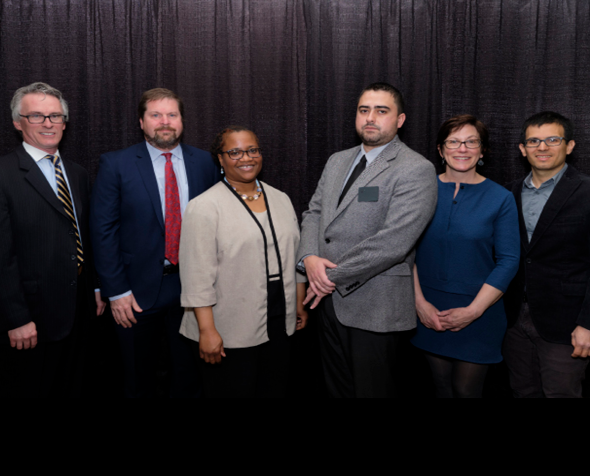$2 Million Grant Program Helps Crime Victims, Launches Careers of Graduates
The Office for Victims Program (OVP), a unit of the Division of Criminal Justice within the Colorado Department of Public Safety, recently announced a $2 million grant program, helping Colorado nonprofits access legal resources and launching careers of recent University of Denver Sturm College of Law graduates focused on public interest law. At least five Denver Law graduates will receive two-year Colorado Civil Justice Corps (CCJC) fellowships with selected nonprofit organizations to provide civil legal services to victims of crime.
The program addresses a critical legal need in Colorado. Only 47 legal aid lawyers are available statewide to help the 880,000 eligible clients in need, according to statistics maintained by Colorado Legal Services (CLS). CLS also reports that 80 percent of low-income people have trouble obtaining legal representation in court to protect their property, family and livelihood when dealing with evictions, foreclosures, unpaid wages, domestic violence and public benefits.
The CCJC is the result of months of hard work by both the OVP’s Civil Legal Services Victims Special Project and Denver Law. It is built around a fellowship program framework initially proposed by the law school. The goal of the project is two-fold: help nonprofits position themselves to provide needed services to crime victims and create an avenue for new lawyers to get a start in the public interest sector, and hopefully, keep them there.
“New graduates in our region typically do not have opportunities to enter into the nonprofit sector right upon graduation,” Alexi Freeman, associate professor of the practice and director of Externships and Public Interest Initiatives said. “We saw this opportunity as a way to cultivate public service lawyers. And, for nonprofits with lean budgets, it provides them with people who can offer legal services right then for victims.”
Through the groundbreaking CCJC program, at least five nonprofits who meet necessary criteria have the opportunity to host up to two fellows. The students who are selected to participate will be provided a salary, training and other resources to complete the two-year, guaranteed position. It’s an attractive program for all involved because CCJC grants fund the placements.
“It offers a good salary, good benefits and provides opportunities for professional development. It is a valuable situation for the fellows, as well as the nonprofits who are too often understaffed and under-resourced,” said Elise Logemann, assistant director of public service in the Office of Career Development and Opportunities.
Potential host nonprofits submitted their applications in February, and the final selection will be announced in March. Students will then apply and ultimately be chosen by the nonprofits later in the semester.





